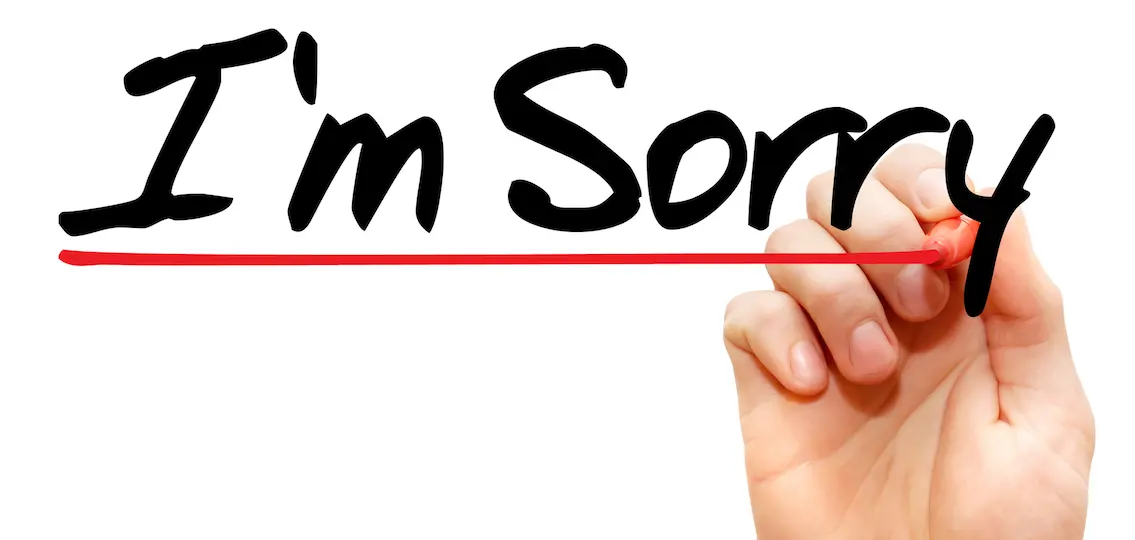“They’ll understand when they’re older.” It’s meant to be comforting. When our kids are parents struggling to do the right thing, they’ll realize how tough it all is. But the part no one tells you is that just because they may one day understand that you did the best you could once they’ve made the transition to adulthood, that doesn’t necessarily mean they’ll agree with your decisions.

A lot of recent conversations with my 19-year-old daughter have revolved around parenting decisions I made in her childhood that she disagrees with. She feels some have even caused lasting damage. Ouch. That hurts. I love my children, but love doesn’t make anyone a perfect parent.
We’re all still human, just doing the best we can. I know my intentions, but I also know that I still don’t agree with every parenting decision my parents made. When I transitioned to adulthood, my goal was to be better than my parents, but I’m not any better—I’m just different.
The Teardown Phase
It turns out that my daughter’s questioning is perfectly normal. In late adolescence and the transition to adulthood, it’s typical for teens to question and reject ideas they may have taken for granted in childhood.
“The late teens represent the stage where you’re figuring out who you are and what you stand for. Teens are creating the person who’s going to transition to adult independence,” says Mary Kay Fleming, Ph.D., a professor emerita of psychology at Mount St. Joseph University. That search for identity is not always smooth. Part of preparing for the transition to adulthood is taking “a hard look at what the starting points in life were.”
“The primary task of the post-adolescent transition is the dismantling of the old life structure of childhood and the construction of a new adult one in its place,” says Mark McConville, clinical psychologist and author of Failure to Launch: Why Your Twentysomething Hasn’t Grown Up … and What to Do about It.
In other words, parents—who created that “old life structure of childhood”—are often at the heart of that dismantling process.
Criticism Can Be Painful
Even though it’s a normal part transitioning to adulthood, hearing our parenting decisions critiqued by our kids, can be painful. That’s especially true when teens don’t deliver their message in the most kind, mature, or understanding way.
Teens are intelligent and can articulate and “show flashes of adult thinking,” says McConville. But it’s important to remember that teens are still developing the ability to apply abstract thinking to interpersonal relationships, which he says is the last area to mature cognitively.
The capacity to understand ideas and use inference grows exponentially in the high school years. But the last area for that to be applied is in relationships, which means they may deliver their point of view in a blunt, adversarial way. According to McConville, most teens are not yet able to say, “I can see you have a point of view that is different than mine, and I can consider both of them simultaneously.”
Mature adults eventually achieve mutuality—seeing your parent as another person who has made mistakes and learned from them like everyone else—which can inspire forgiveness. “The ability to achieve this mutuality will at best come at ages 17 to 19,” says McConville, “but many kids in their 20s are not there yet.”
From Criticism to Connection
Scrutiny is hard to take, and critical words are hard to hear. But if your teenager is coming to you wanting to talk about it, hearing them is an important part of transitioning to adulthood. “I would see it as a positive,” McConville says, explaining that if one of his clients disclosed trouble reconciling events from their childhood he would ask, “Have you thought about going to your parents and telling them how you feel?”
McConville stresses that if you’re hearing this criticism for the first time from your child, take it seriously. Look for the validity in it because if you can see that, you can offer a sincere apology and begin to move forward in understanding.
Get Yourself Some Support
Your teen may be transitioning to adulthood, but they are still not your peer. Conversations will still be very one-sided. McConville says, “The task at hand is to listen thoughtfully so you can validate as best you can.” That’s hard when it hurts.
| [adrotate banner=”209″] |
Find someone else to talk to who will listen to your perspective. Your teen may not be ready to hear that you fell short as a parent because of struggles happening in your own life. “You need someone to support you so you can turn back to your teen and say, ‘I really want to understand how this was painful for you,’” McConville says.
Transitioning to Adulthood
When a teen is first finding their voice and sharing their perspectives with you, validation is really important. But McConville also warns that there is another version of this where the critical approach goes beyond what’s reasonable. If your teen keeps saying what a horrible parent you are, and you’ve already taken ownership for the parts that you could, it could be a sign that your teen is developmentally stuck. When you’ve hit the “broken record” stage, it’s time to get your teen some help processing with a professional.
“If a 19- or 20-year-old comes into therapy, and the story they want to tell is of the bad parent, I accept that as the starting point,” says McConville. The person is struggling and needs support. But McConville also says it’s important that during the transition to adulthood, a person is able to own their part in relationship struggles. He’ll ask something like, “So what’s your part in all of this?” It’s the reflective question. At a certain level of cognitive maturity, a person can take that prompt, see they played a part, and maybe say, “I did X, and I probably shouldn’t have.”
“If they can do that,” McConville says, “it shows they are on the cusp of going from projection to reflection. And reflection is a sign of maturity.” He also warns that there are some adults who cannot do this. “Their ability to reflect is completely underdeveloped.”

As they mature, teens realize they don’t get a do-over, and neither do parents. From there, Fleming says, “it becomes a matter of making peace with that. Teens start to find empathy for their parents, knowing they did the best they could with what they knew at the time.”




